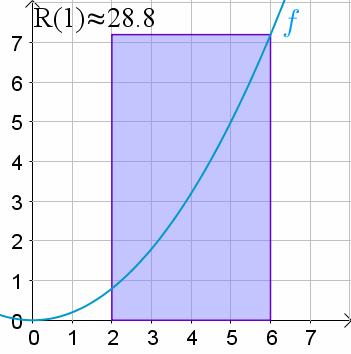- cross-posted to:
- [email protected]
- cross-posted to:
- [email protected]
This post confuses me. Why would code be simpler than the math notation? Both involve symbolic abstraction of basically the same complexity
Its got to be a relatively small group who knows enough to understand loops and is also afraid of math symbols.
Hi, I’m the problem. It’s me.
Maybe not so small?
I never encountered these math symbols but for loops are like step 3 in any programming language after variables and conditionals
lol, like 2.5% of the USA are programmers and even if we say twice that number have experimented and taken programming classes, that’s like 1 in 20 people who would even have ever encountered a for loop. This nsf report says ~70% of highschoolers have taken Algebra 2 or a more advanced math course, which is when sum notation is usually introduced. I think 70% is a little greater than 5%!
That’s interesting to hear; somehow my algebra 2 skipped sum notation (and it wasn’t remedially covered in subsequent math classes) but I’ve been writing code for decades now and seeing it in code totally explains the sum notation for me
I was great at maths in school, was in all the advanced classes and I found it so fun it didn’t feel like work to me. I learned a lot of the notation, but because I didn’t study maths further, I became rusty. With programming, I never really learned it, I just kept coming into contact with it as part of my post university work (in science), and gradually, I picked up some basics. The coding basics I did get feel much more familiar to me than the maths concepts now, because I literally couldn’t avoid coming into contact with coding in my work.
The maths they teach in school also is generally very pure maths, and that can make the concepts remain quite abstract. Matrices, for example, made way more intuitive sense to me when I used them as a scientist than when they were taught to me as a maths student.
Lol, basic coding is part of the mandatory school curriculum for 12 year olds in Australia.
Huh. When I took Calculus II in community college, the professor introduced sum notation and like 2/3 of the class was like “wow that’s cool I didn’t know about that”. I don’t remember ever being formally taught it before that but it still surprises be how few people where already familiar with it.
I’m in that group I think. I do like a liiitle bit of coding in some tiny specific progrqmming language in one piece of software that I use. I understand the basics but try to avoid having to do it. But while code is a little scary to me, math is much scarier lol
I’m in this group and I don’t like it
I believe this group could be bigger than some may think. I, and the team I work with, work with for loops similar to these on a regular basis. And only one of us has a bachelor’s degree in math. The rest of us don’t really understand the math unless it is applied.
Those of us born in the 70s… Doing anything with a computer required knowing at least a little programming, so we learned at 8 years old, then when we got to high school/college, we were taught by people who knew nothing about programming because they were already old and didn’t think they needed to learn anything new…
Hellllooo I just took a c++ class and remedial math 🤣.
I never made it into algebra in grade school, my scores weren’t good enough. but I took a liking to software dev and the ability to create digitally. Self taught myself all the variables and flow controls and OOP, now been a professional developer for 15 years.
However I still suck at math, and these fancy symbols still scare me probably because they were never properly explained. But yeah, I fit right in the mold you describe. Glad I have the computer to crunch the numbers for me.
Not really sure if this answers your question (I agree with you, ultimately), but here’s my experience:
At the college I attended, these sigma/pi expressions weren’t taught until the end of Calculus 2, but I wanted to take an Algorithms class - which had calc 2 as a prerequisite.
I got an exception from my advisor which allowed me to take Algorithms before the pre-req. In my experience, these concepts were easily learned in the context of algorithmic complexity.
Some might be barred from learning important theory in computer science by “brutal” math classes at university. They might find solace in this post which translates sigma into ‘for’
deleted by creator
I’m a subscriber to her YouTube(one of my favourite videos of hers) and she has a bunch of videos aimed at helping game developers learn the maths concepts they need for making games, so her audience is mostly people with a coding background, I’m guessing.
So it’s less that code is simpler than math notation, more that the maths notation looks scary to people without a maths background, but here’s a link to a different complex symbolic abstraction that you might already know
Here is an alternative Piped link(s): https://piped.video/aVwxzDHniEw
Piped is a privacy-respecting open-source alternative frontend to YouTube.
I’m open-source, check me out at GitHub.
I forget what the symbols mean but I’m sure not gonna forget what a for loop means
Math notation is just terrible in general because a lot of it is shorthand made up by someone who likes single-letter variables. A symbol you can’t type, something above, something below.
A for loop is clear and descriptive.
Or if you’re feeling fancy, you could go functional withreduce(add, range(0, 5), 0).Mathematical notation was designed to be written by hand. It is at least as clear and descriptive as any syntax from a programming language. You’re pretending that the abstraction behind a for loop is somehow less than that behind a sum or product notation.
They are the same difficulty level, sure, but that’s like saying f(x) and f’(x) are at the same difficulty level. Coming from one to the other in a process is the difficult part, and the code offers instructions to follow this process.
I mean they are both the exact same thing, I don’t see why summation is scray when the for loop isn’t. It’s the same thing written in a short and easy format.
It’s a Meme? Do you ask the same under other memes as well “What is the reason?”
Why not? If you don’t understand a meme it’s perfectly fine to ask for a context or explanation.
i hate that we all got so frightened about math. it’s genuinely fun to learn how it works when you’re not being forced to in a school setting, which was just a fucking nightmare for no reason. i had this former navy DI lady teacher in gifted kid algebra [so already a year ahead] yell at me for asking questions; she wasn’t going to ‘hold my hand’ thru the homework, which was quite literally her fucking job
Turning 35 in a month and I’ve just started learning maths again after being afraid of it because of a similar situation to yours.
It’s surprisingly easy. I used tl give maths tutoring to finance my university degree. What I’d do is let the kids do one exercise task from their school books to see where their difficulties were. While they were on it, I quickly read through the relevant sections in the book, and it was so easy every time that I knew everything I needed to know after a few minutes. Like literally stuff that took weeks at school within minutes.
School just sucks and makes it really hard to learn anything. Almost everything kids learn at school is actually really easy.
Well it’s harder for them because they are kids and their brains are still developing. You’ve had a lifetime of experiences to draw from where you use math concepts subconsciously many times a day.
Totally true. They haven’t learned to learn yet, they aren’t learning because they want to, or even because they need what they learned.
But the point I was trying to make is, that many adults are still afraid (and many even strongly so) of maths, because it was hard for them at school. But it probably wouldn’t be hard for them now.
Sorry you were put through that. Aggressions are no place for learning
My family and school were god awful at teaching. It was all forced (rote memorisation) learning and not me actually learning. I needed things taught slowly and broken down. I have wanted to learn the more advanced technical maths long ago, but now I am an adult and need to find a safe, quite and gentle environment where i can
anybody reading this, please do not give suggestions or advice in replies. thank you.
My advice is to keep something to yourself if you don’t want to listen to peoples opinions about it.
Im sorry you had awful teachers, but not all of them are bad. I had amazing teachers that were very worried for the students to learn. In contrast I had very shitty classmates that just didn’t care and would blame the teachers for their laziness.
Idk man I’ve been doing my Cal 3 and 4 this semester and fuck me it’s hard. Yeah sure it’s cool sometimes but wrapping my head around it and often trying to think about things geometrically hurts. I sat there for a full hour trying to figure out why I couldn’t picture the equation I was trying to take a triple integral of only to realize it’s 4 dimensional and I almost cried
i completely agree. this sentiment was echoed pretty well in a (nontechnical and accessible) paper i read a few years ago. he says the current approach is like forcing people to learn music, but only teaching them how to read sheet music and not letting them touch any instruments. it hides the creativity and problem-solving of the discipline and reduces it to memorizing formulas.
It’s not about being frightened, it’s just that i know only a handful (mostly esoteric) languages with worse syntax.
Fear fear fear. The same old, actually hollow from the inside, villian that bugs me everywhere
When you study CompSci (depending on where IG) you tend to see them that way when trying to mathematically prove something about an algorithm. It’s only really a good way of thinking if you’re into coding, but I don’t think a teacher for a non-coding related algebra class should show this, it can be really confusing for some people.
I liked this so much I tried to find more. A few seconds googling turned up a lot, but this is the first hit: https://amitness.com/2019/08/math-for-programmers/
Hi, you can look into “discrete mathematics” if you’re interested in the overall subject of math for programmers, it was one of my hardest class but highly intesting!
That sounds perfect because I don’t want anyone to know I’m studying math.
I was “good at math” in school and all through uni. Discrete mathematics crushed me.
Dude, 🔥👍
People who are arguing that one way of expressing these concepts is easier to learn/understand than the other are missing the whole point. Mathematical notation was not designed to teach students how to do math or explain how to design algorithms. It was invented to communicate precise, abstract ideas concisely between mathematicians who already understand what the symbols mean.
Mathematicians require a notation that has the flexibility to manipulate mathematical objects/symbols in a way that naturally emphasizes their properties and relationships. Often they don’t even care whether the objects they’re studying are even computable or have a numerical representation. They just need them to have certain properties so that they can be manipulated appropriately.
Discrete sums are a rare example of when the mathematical notation overlaps with the description of an algorithm for computing its value (and the overlap is not even complete; infinite sums are easily represented in math notation but are practically uncomputable when implemented naively). Every other advanced mathematical concept puts a premium on ease of symbol manipulation over computability: integrals, derivatives, matrix multiplication, abstract algebra, etc.
TL;DR math notation is complex because its intended audience is people who already understand it, want maximum flexibility of symbol manipulation, and historically didn’t really care about practical computation.
You are right the symbols weren’t created so students can learn them, but students have to learn them at one point and for me personally, a student that knows how to program, figuring out that these symbols kind of represent for loops made them easier to understand.
deleted by creator
These scary large math symbols aren’t scary at all and easily explained. The scary parts of maths lie elsewhere. They are discrete, nonlinear or high dimensional and sometimes even the numbers are complex… Or worse.
Quaternions are the closest you’ll ever get to lovecraftian horror in real life.
What’s so scary about hypercomplex numbers exactly?
Let’s start with how their equation was originally carved into a stone bridge by a crazy mathematician in a fit of madness.
WHAT ok now I’m interested
Knowing that no matter how many times you read the theorem, there’s no fucking you’ll memorize it for the exam. Oh, and also there are at least 20 of them, and you don’t know which one they are going to ask.
Ah, well, I’m just a bit dumb, so for me it’s not different from many other things. While the general idea is quite easy to remember.
It’s very Lovecraftian that you saying this only makes me want to learn about them even more
I recommend this video and the channel in general. The guy can explain even the most complicated and abstract mathematical concepts in a perfectly clear and understandable way.
…
I had to watch the video on quaternions three times to grasp the concept.
Here is an alternative Piped link(s): https://piped.video/watch?v=d4EgbgTm0Bg
Piped is a privacy-respecting open-source alternative frontend to YouTube.
I’m open-source, check me out at GitHub.
Yea that’s not explained better than a math teach. They just swapped notation common in math, for notation common in one specific programming language. it’s only easier for the audience who happens to be familiar with programming in general, and that language in particular.
one specific programming language
I think you’d be hard pressed to find someone with any sort of programming background, even just as a hobbyist, who doesn’t understand that for loop notation, whether or not they know the specific language it’s from. (I couldn’t even tell you what specific language that’s from, because that notation matches so many different ones.)
I have a 15 year old son; he definitely has not seen summation in math classes yet, but he has far more than enough programming experience (even just from school) to understand the for loop.
I think its Java.
It’s any C derivative language.
Could also be Javascript or C#.
Or C or C++
Java/C# would have types before the variables:
double sum = 0d; for (int i = 0; i < 4; i++) sum += 3 * i;Only if they’re declared in the snippet.
I think the concept of a for loop is easier to learn, even for non-programmers, as biased as I may be.
Which makes the integral sign ∫ a non-discrete for-loop
That does not help. What does non-discrete mean?
Continuous.
Instead of jumping from 1 to 2 to 3, we move smoothly across all (typically real) numbers. Obviously this would go to infinity almost every time because there are infinite real numbers between any two distinct real numbers. So instead, we merge it into a bunch of skinny rectangles with their bottom on the x axis and the top at the value of the function for the start of the rectangle. As we shrink the width of the rectangles, it approaches the continuous notion.
Continuous means “smooth” - there are no jumps Discrete means there are jump

Short answer: Imagine that the integer used in the for loop is a float instead.
Longer, a bit more precise answer: An integer can only have discrete values (i.e. -1, 0, 1, 2, …, 69, … etc.)
A real number (~float with infinite precision) can have an infinite amount of values between two discrete values.
An integral is, to put it simpy, a sum of all the results of taking those infinite values between two discrete values (an interval) and feeding them to the given function.
It’s a for loop over an infinite set of real numbers rather than over a finite set of integers => a non-discrete for loop
if you take a modular approach and allow different measures to be used, it also lets the integral sign be a discrete for-loop
Maybe I’m crazy but they did teach me this in school. “This means so this operation until conditions are met”.
I have no idea what these math things are but I understand the code perfectly lol
Theyarethesame.png
Came here to say the same!
Wow, this is by far the clearest I’ve ever seen this explained.
Just notational difference other than presence of mutation… How is it harder to understand
3 + 6 + 9 + ... + 3nmeans compared to the for loop? Is repeated addition hard to grasp?No it’s not harder to grasp, just less concise. Summation and Product notation exist for the same reason we don’t say “a discernible but subtle level of humidity” and just use “moist” instead - it’s more convenient. People can be taught to readily understand “moist” or the summation notation. It’s much harder to teach people to read the longer notation more quickly.
Meme is gud, title is stupid
This thread makes me sad as fuck.
Obviously you can integrate using Sigma notation, if it’s a definite integral.
Stfu basement dweller. Forgot what channel your in?
This is the part of Reddit that I don’t miss. Please let’s not do this.
While I acknowledhe that I had some pretty awful math teachers, I would like to add that explaining math concepts in an edited video that you could spend a lot of time making has different demands than babysitting/teaching 30+ students at different levels multiple times a day with little prep time.
Also the viewers are actively looking for that content
Fuck! Im 40 and this is the first time I understand the sigma sign!! Thank you!
Couldnt they just show this to me at 7th grade or something when i already learned pascal?
The sigma sign shows up as “sum” quite a bit but I didn’t know about the for-loop thing.
I was into coding (javascript) but nope they are unwilling to find creative new ways to help teach people, gotta be a nonseical “one size fits all”
Removed by mod
The hardest thing for me about math was the symbols. Greek, Roman, English.
Once you get past that, the numbers are easy.
Removed by mod
Ok but this is a bit of an unfair comparison given that Freya is pretty god tier at actually explaining math things.
Her videos about splines are god-tier
Went to look for the splines video and i already watched it? and her other videos i do not remember binging this
Here is an alternative Piped link(s): https://piped.video/watch?v=jvPPXbo87ds
Piped is a privacy-respecting open-source alternative frontend to YouTube.
I’m open-source, check me out at GitHub.
This isn’t even god tier, it’s just that more people are familiar with the basics of programming than higher level math, which is honestly a good thing.
I’m amazed people in here are calling a summation higher level math. Apparently my school experience was way different than a lot of other people’s.
Maybe not this, but her video on splines is amazing.

















